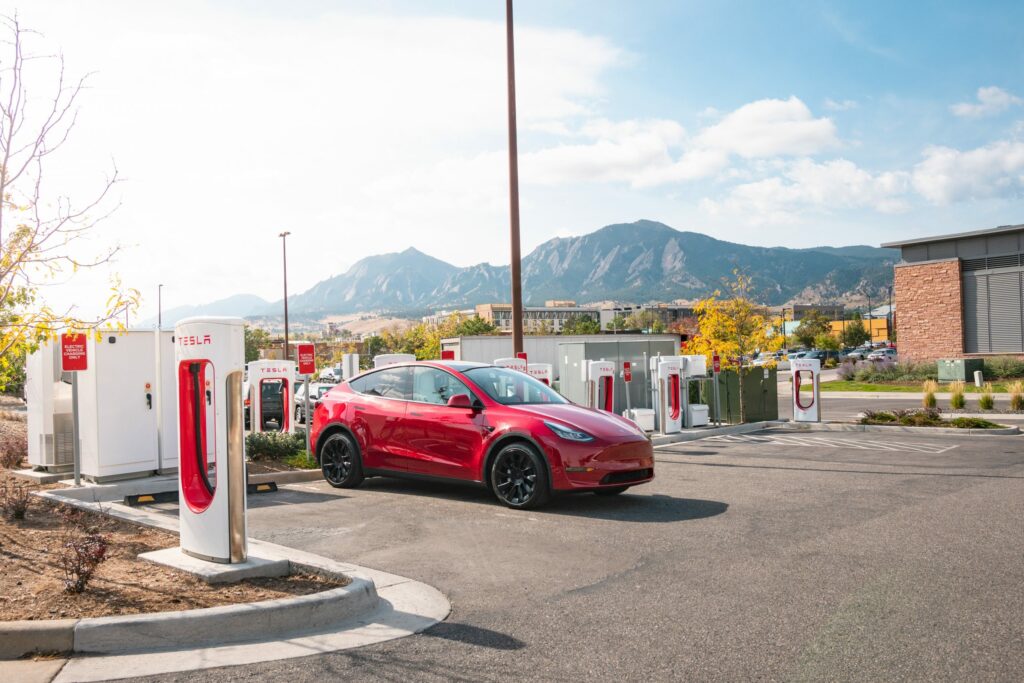Tesla and Elon Musk tried to help automakers that have ultimately delayed their transition to electric vehicles to the point that change is likely, but at a much slower pace than what is ideal.
But Musk said in a Tweet on his social media platform X this morning that Tesla, his industry-leading car company, has tried to make the transition easier and seamless.
Many of his calls to help other car companies have gone unanswered, although the open-sourced patents and other advantages Tesla has offered to what many would call “rivals” would help them advance their efforts.
Musk said on Tuesday morning, in response to a popular meme that portrayed rival automakers in the midst of a housefire while saying, “This is fine,” Musk said:
“It is unfortunately trending that way for many automakers. Some companies do understand, but their pace of change is nonetheless slow.”
There are exceptions. Ford is likely the most serious of all legacy automakers in terms of its commitment to EVs. Its $5.6 billion investment into BlueOval City, a Tennessee mega campus that will build batteries and vehicles, was the Detroit-based company’s “put your money where your mouth is” moment.
Along with separating its EV division from commercial and combustion engine projects, Ford has launched the Mustang Mach-E, F-150 Lightning, and E-Transit, along with plans for a future EV truck.
General Motors is likely second. Although the Biden-proclaimed “Leader in EVs” has struggled to put a major effort forward through the past few years, struggling with the early rocky roads of an EV transition, it has some credibility. The Chevrolet Bolt has been a mainstay in the sector, and after announcing it would discontinue the vehicle, it reversed its plans.
But others have lagged in their transitions, even though help is available to them. A 2014 blog from Musk titled “All Our Patent Are Belong to You” showed Tesla was ready to help “accelerate the advent of sustainable transport,” as Musk put it. Put advantages over competitors aside. It was much bigger than an edge over them.
Not only are the patents available, but Musk has hinted toward licensing Full Self-Driving to a major automaker during the last Earnings Call, and with many thinking Ford is the most likely to do so, nothing concrete has been announced.
Additionally, the Supercharger Network has been one of the more evident examples of Tesla trying to help EVs be more appealing, even if it means giving up its biggest competitive advantage.
Credit: Tesla
“Tesla is trying to be as helpful to other carmakers as possible with the transition to autonomous electric vehicles: we open source our patents, provide access to our Superchargers and have invited them to license our self-driving AI system,” Musk said.
When companies continue to make excuses for their lack of effort in the EV transition, their reasons should be pushed by the wayside. The help is there, and so is the infrastructure.
Could you imagine if Tiger Woods said he’d help all of his PGA Tour playing mates improve their game all around during his legendary run from 1997 to 2008?
Tesla is essentially doing this. If you don’t take the help and guidance, then what will the next excuse be?
I’d love to hear from you! If you have any comments, concerns, or questions, please email me at joey@teslarati.com. You can also reach me on Twitter @KlenderJoey, or if you have news tips, you can email us at tips@teslarati.com.
The post Tesla and Elon Musk tried to help appeared first on TESLARATI.
Source: TESLARATI
